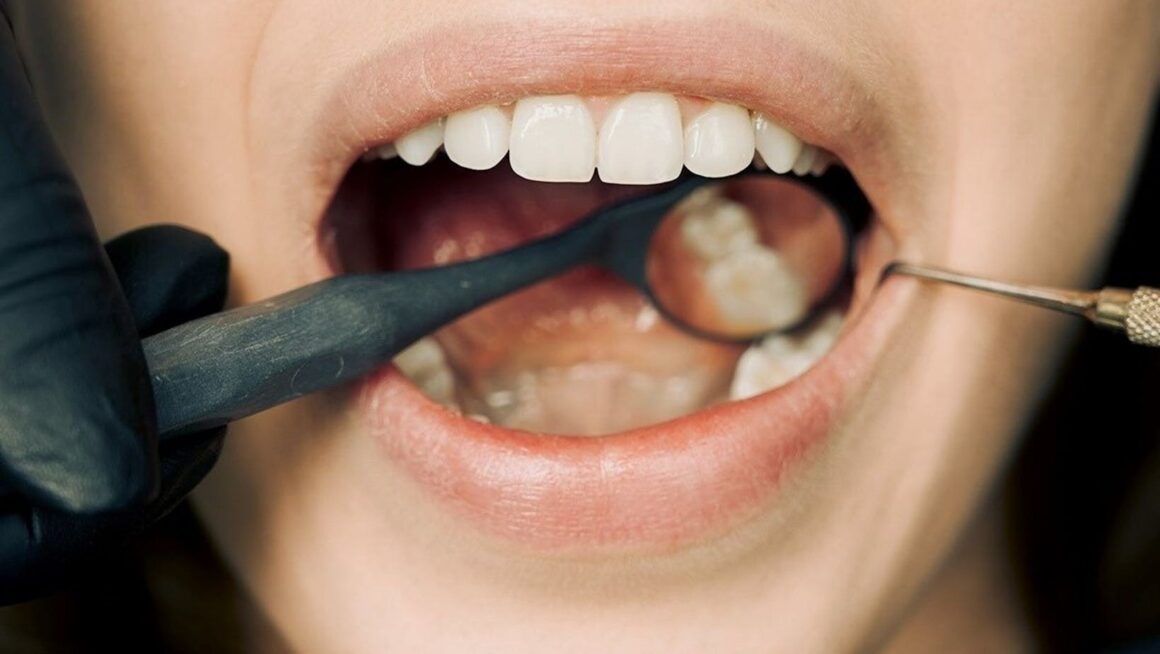Oral health is often viewed in isolation, but the state of your mouth can significantly impact your overall health.
The mouth is a gateway to the body, and neglecting oral hygiene can lead to a range of health issues beyond cavities and gum disease. Understanding the mouth-body connection is crucial for maintaining both dental and systemic health.
What comes in, it goes out at some point, through all our cavities and pores.
The Vast Importance of Oral Hygiene
Daily brushing, flossing, and regular dental check-ups are essential practices that help prevent oral diseases that can have far-reaching effects on your overall health. But why is this so?
Oral Health and Cardiovascular Disease
Research has shown a strong link between poor oral health and cardiovascular diseases, such as heart disease and stroke. The bacteria from gum disease can enter the bloodstream, causing inflammation and contributing to the formation of arterial plaque.

This plaque can lead to atherosclerosis, increasing the risk of heart attacks and strokes.
Diabetes and Oral Health
People with diabetes are more susceptible to gum disease due to their reduced ability to fight infections. Even worse, severe gum disease can make it more difficult to control blood sugar levels, worsening diabetes.
Maintaining good oral hygiene can help manage and prevent the complications of diabetes.
Respiratory Infections
Bacteria from the mouth can be aspirated into the lungs, leading to respiratory infections such as pneumonia.

Did you ever fall asleep after eating something sweet and wake up swollen and feeling almost ill? That’s it.
This is especially concerning for individuals with weakened immune systems, the elderly, and those with chronic respiratory conditions.
Good oral hygiene can reduce the risk of these infections by minimizing the bacterial load in the mouth.
Pregnancy and Oral Health
Pregnant women need to pay special attention to their oral health. Hormonal changes during pregnancy can increase the risk of gum disease, which has been linked to preterm birth and low birth weight.

Regular dental check-ups and maintaining good oral hygiene are vital for the health of both the mother and the baby.
Oral Health and Cognitive Decline
Emerging research suggests a connection between oral health and cognitive decline. Chronic oral infections and gum disease may increase the risk of developing Alzheimer’s disease and other forms of dementia.

Inflammation and bacteria from the mouth can reach the brain, potentially contributing to the development of these conditions.
Jaw and Teeth Microdynamics
The alignment and positioning of your teeth and jaw play a crucial role in your overall oral health. Proper microdynamics—how your teeth and jaw move and function together—affect everything from chewing and speaking to the long-term health of your teeth and gums.
Misaligned teeth or an incorrect bite can lead to a variety of issues, which is why wearing braces can be so important.
These small micro-movements are essential for:
Efficient Chewing: Proper alignment allows for effective and efficient chewing, reducing strain on your jaw muscles and minimizing wear on your teeth.
Speech Clarity: The positioning of your teeth affects your ability to pronounce words correctly. Misalignment can lead to speech impediments.
Jaw Health: Proper alignment ensures that your jaw joints (temporomandibular joints) function smoothly, preventing issues like TMJ disorders, which can cause pain and discomfort.
Preventing Tooth Wear: Misaligned teeth can cause uneven wear, leading to damage and an increased risk of decay.
Gum Health: Crowded or misaligned teeth can make it difficult to clean between them, leading to an increased risk of gum disease.
The Importance of Wearing Braces
Braces are an effective solution for correcting misaligned teeth and improving the micro dynamics of your jaw. They work by applying continuous pressure over time to move teeth into the desired position, which can significantly improve oral health and function.

Correcting Misalignment: Braces straighten teeth, close gaps, and ensure that your bite is properly aligned.
Improving Oral Hygiene: Properly aligned teeth are easier to clean, reducing the risk of cavities and gum disease.
Enhancing Aesthetics: Straight teeth contribute to a more attractive smile, boosting confidence and self-esteem.
Long-Term Health Benefits: Correct alignment can prevent long-term issues such as jaw pain, tooth wear, and gum disease.
How Steep is the Price?
Orthodontic treatments, including braces, can be expensive, but the investment in your oral health and overall well-being is invaluable.
Fortunately, there are places where you can receive high-quality dental care at a fraction of the cost compared to the United States.
Here are three destinations that offer affordable and top-notch orthodontic treatments:
Mexico
Mexico is a popular destination for dental tourism due to its proximity to the United States and significantly lower costs. Cities like Tijuana, Cancun, and Los Algodones are known for their modern dental clinics that provide a wide range of orthodontic treatments.
Tijuana: Just across the border from San Diego, Tijuana offers numerous dental clinics with experienced orthodontists. Patients can expect to pay about 50-70% less than in the US.
Cancun: Known for its beautiful beaches, Cancun also boasts excellent dental clinics that cater to international patients. Many clinics offer vacation packages that include dental care and accommodation.
Los Algodones: Often referred to as “Molar City,” Los Algodones is home to hundreds of dental clinics. It’s a popular spot for affordable and high-quality braces.
Costa Rica
Costa Rica is another excellent choice for affordable dental care. The country is known for its high standards in medical and dental services, with many clinics offering state-of-the-art orthodontic treatments.
San José: The capital city has a large number of reputable dental clinics that specialize in braces and other orthodontic treatments. Costs are typically 50-70% lower than in the US.
Escazú: A suburb of San José, Escazú is home to many modern dental clinics with highly trained orthodontists. Patients can enjoy high-quality care in a beautiful setting.
Singapore
Singapore may not be the cheapest option compared to Mexico or Costa Rica, but when it comes to braces singapore offers excellent value for money with high standards of care and advanced technology.
Singapore’s dental clinics are known for their professionalism and efficiency.
Many clinics in Singapore provide comprehensive orthodontic treatments, including traditional braces and clear aligners. While prices are competitive, the quality of care is exceptional, making it a worthwhile consideration for those seeking reliable and efficient dental services.
Properly aligned teeth are easier to clean and maintain, reducing the risk of plaque buildup and gum disease.
When teeth are misaligned, it becomes more challenging to maintain good oral hygiene, leading to increased plaque and tartar accumulation. This, in turn, can cause gum disease (periodontitis), which is characterized by persistent inflammation.
The Role of Inflammation
Chronic inflammation is a key factor linking oral health to various systemic diseases. The mouth is a major entry point for pathogens, and poor oral hygiene can lead to conditions like periodontitis, impacting overall health.
This chronic inflammation doesn’t just stay in the mouth; it can spread throughout the body, triggering or exacerbating other health conditions.
Gum Disease and Systemic Inflammation
Gum disease begins with plaque buildup, leading to gingivitis, an early stage of gum disease marked by red, swollen, and bleeding gums.
If untreated, it progresses to periodontitis, a more severe form of gum disease that causes the gums to pull away from the teeth, creating pockets that become infected. The immune system’s response to this infection results in chronic inflammation.
Pathways of Inflammation Spread
Bloodstream: The bacteria from infected gums can enter the bloodstream through the gum tissue. Once in the bloodstream, these bacteria can travel to other parts of the body, causing inflammation and contributing to systemic conditions.
Immune Response: The immune system responds to oral bacteria by releasing inflammatory mediators, such as cytokines. These mediators can circulate in the bloodstream, promoting inflammation in distant organs and tissues.
Maintaining Oral Health for Overall Well-Being
Given the significant connections between oral health and overall health, it’s crucial to adopt a comprehensive approach to oral hygiene. Here are some essential practices:
- Brush your teeth at least twice a day and floss daily to remove plaque and prevent gum disease.
- Visit your dentist regularly for cleanings and check-ups to catch and treat issues early.
- Eat a balanced diet low in sugar and high in fruits, vegetables, and whole grains to support both oral and overall health.
- Smoking is a major risk factor for gum disease and oral cancer. Quitting smoking can significantly improve your oral and overall health.
- If you have diabetes or other chronic conditions, work with your healthcare provider to manage them effectively.
Takeaway
Treat your oral health with the importance it deserves. Make it a habit, a priority, and a reflection of your dedication to a healthier, happier life. A bright smile is not just a cosmetic asset—it’s a testament to your overall wellness and a key component of a healthy future.



